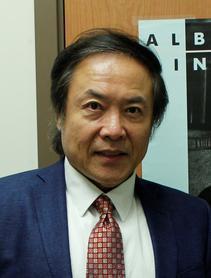Materials Science Academic Minors
To apply for the minor program, one can register online at the website below. Upon completion of all required minor courses, the student receives an official certificate of completion of the minor, which will be transcripted.
Frequently Asked Questions
An academic minor does not require extensive course credit hours, yet opens new opportunities for an engineering student. At University of Cincinnati, the minimum requirement is 18 credit hours of which a significant fraction can be satisfied within the major program curriculum. Therefore a student may need only three courses outside the major program. As a result the student acquires substantial knowledge in a distinct, but related field. A minor broadens one’s knowledge base and enhances career opportunities. For instance, a mechanical or chemical engineering student may decide on a Materials Minor. The student will learn important concepts that are shaping emerging technology, including polymers, metallurgy, composites, and nanotechnology. Skills in these areas are needed throughout industry where students with knowledge in materials are highly preferred by employers.
Certificates are intended to validate competency or knowledge of a skill or topic. They are generally not available in programs where majors are available and are intended for matriculated and non-matriculated students, with the exception as serving as a mechanism for student to earn “post-baccalaureate” minors. Although these certificates do not correspond to baccalaureate majors offered at UC, the included coursework should be at a level comparable to a minor. Undergraduate Certificates are tracked via degree progress audits (DPAs) and are transcripted.
In contemporary industry, professionals work in an interdisciplinary environment that requires knowledge and experience in both technical communication and teamwork. Studying outside one’s major enhances such skills. A materials minor, for example, enables a mechanical or aerospace student to understand issues that are involved in the design of an engine or an aerodynamic system, such as material fatigue microstructure aspects of metals that lead to fatigue. Similarly a chemical engineer learns the concepts that underlie thin-film sensing devices via understanding of the material interfaces.
Nanotechnology is one of the key engines that is driving twenty-first century innovation. This rapidly growing discipline impacts biomedical tools for diagnosis and therapeutics, new energy devices, and energy grid systems. Nanotechnology research, for example, has produced such materials as imaging agents for early cancer diagnosis, nano composites for super capacitors, advanced electrochemical energy storage devices, novel pulsed power capacitors for reducing the rate and rapid cycling demand on batteries for electric vehicles, and flexible low-loss thin films for solar energy cells. All these developments are based on concepts that were unknown 15 years ago. Thus, nanomaterials expertise is emerging as an essential skill across many technologies.
Contact Us

Donglu Shi
Professor (F2), CEAS - Materials Science & Engineering
493 Rhodes Hall
Dr. Donglu Shi served as Chair and Graduate Director of Materials Science and Engineering from 2013 to 2023. He is presently the Director of Energy Materials and Nanomedicine Laboratories in the College of Engineering and Applied Science. Dr. Shi has conducted research across diverse fields such as nanoscience, energy materials, biomedical engineering, precision medicine, and condensed matter physics. His efforts have led to over 300 peer-reiewed journal publications with a Google Scholar h-index of 80. Some of his papers have appeared in leading journals like Nature, Nature-Communications, Physical Review Letters, Advanced Materials, and ACS Nano. He was a visiting scholar at Zurich University of Applied Sciences (ZHAW), Switzerland, Centre National de la Recherche Scientifique, Grenoble, France, and a Fellow at Fitzwilliam College, University of Cambridge conducting research on energy materials and nanomedicine. Additionally, Dr. Shi is a Fellow of ASM International and a Graduate College Fellow at the University of Cincinnati. He has so far supervised a total of 50 graduate students.
NSF research programs on energy materials
NSF research on plasma virus disinfection
Personal Website